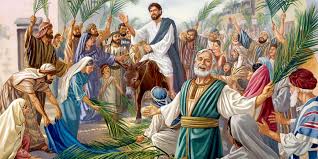A father had two sons. The younger comes to him and says: ‘Father give me the share of the property that’s coming to me.’ His father shares out his goods. The younger son takes his share, leaves for a distant country, and squanders his property on a life of debauchery. When he has spent everything, he finds himself hungry and humiliated and sets off to return to his father’s house, where he is undeservedly greeted, embraced, and taken back by his father.
At one level, the lesson is clear: God’s mercy is so wide and compassionate that nothing we can do will ever stop God from loving us.
But (philosopher and theologian) Jean-Luc Marion, drawing upon the specific wording of the Greek text, emphasizes another element in this story. It implies that the son went to his father and asked for something more than property and money. It says that he asked his father for his share of the property (ousia). Ousia, in Greek, means “substance”. He’s asking for his life, as independent of his father.
As a son and an heir, he already has use of his share of what is rightfully his; but he wants to own it and not owe it to anyone. He wants to have it as independent of his father, as cut off from his father, in a way that he no longer has to acknowledge his father in the way he receives his life and freedom and uses them. The consequence of that, as this parable makes clear, is that a gift no longer sensed or acknowledged as gift always leads to the misuse of that gift, to the loss of integrity, and to personal humiliation.
The prodigal son wanted his life and the freedom to enjoy life completely on his own terms and, for him, that meant he had to take them outside his father’s house. That’s why Jesus repeated again and again, that he could do nothing on his own. Everything he was and everything he did came from his Father.
Our lives are not our own. Our lives are a gift and always need to be received as gift. We can enter our lives and freedom and enjoy them and their pleasures, but as soon as we cut them off from their source, take them as our own and head off on our own, dissipation, hunger, and humiliation will follow.
To read more click here or copy this address into your browser http://ronrolheiser.com/
www.facebook.com/ronrolheiser
www.facebook.com/ronrolheiser



